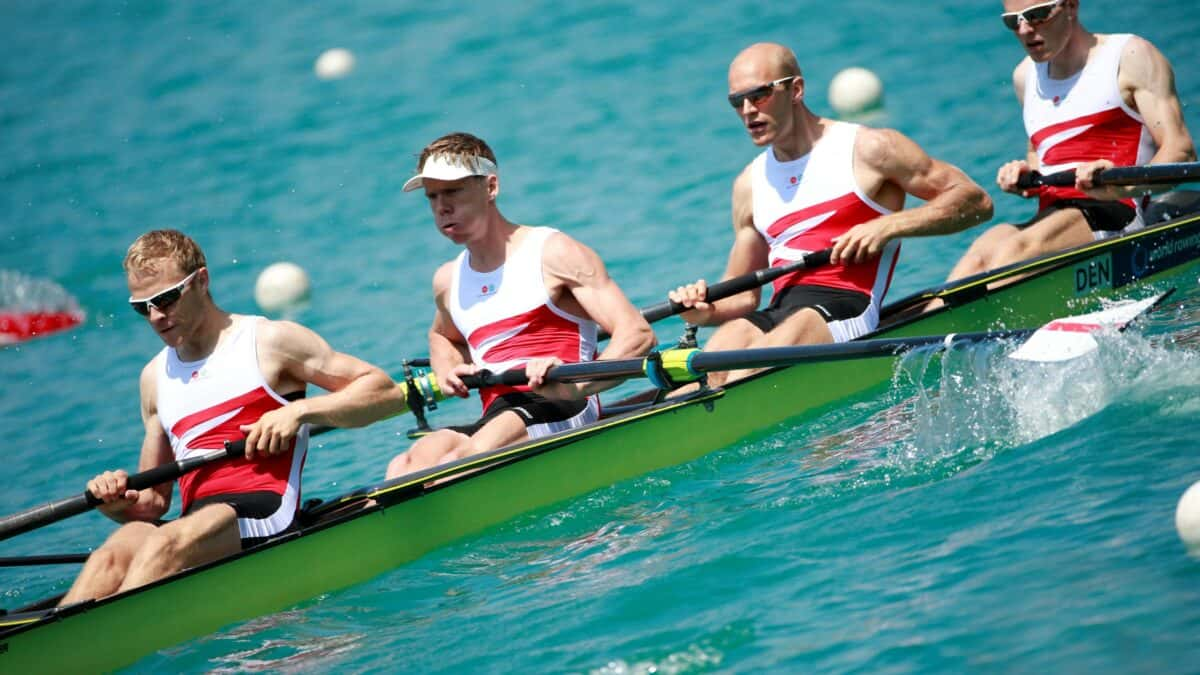
01 Jan 2015
Bent Fransson - World Rowing Coach of the Year
Under Fransson’s guidance the crew won gold at the 2008 Olympic Games and bronze in 2012. Since then, despite the retirement of the famed Eskild Ebbesen, the crew has won gold at both the 2013 and 2014 World Rowing Championships and European Rowing Championships.
Himself formerly a lightweight rower, Fransson won World Championship gold in the lightweight men’s eight back in 1981, followed by silver in 1982 and bronze in 1983 and 1986. He was also at one point a member of his nation’s lightweight men’s four and together they won bronze at the World Rowing Lightweight Championships in 1976.
In 2014, when he received the World Rowing Coach of the Year award, Fransson said: “Without the rowers, I obviously would not be standing here tonight. It is the rowers who are great and who put in the hard work.”
The fame of Denmark’s lightweight men’s four over the past decades has obviously made it a boat that all male lightweight rowers in Denmark dream to become part of, as Fransson says: “All lightweight rowers in Denmark want to be in the four because of its incredible history in our country. Selecting is a hard job, but you have to do it.”
Fransson talks to World Rowing about life as a coach of one of the best crews in the world. John F. Kennedy and more:
World Rowing: What factors have played a role in your success this year?
Bent Fransson: We are a very homogenous team who benefit from our vast experience. At the same time we always push each other to the limits during training and work with small details. And we have over the years developed a winning mentality.
WR: Where are you keeping your World Rowing Award?
BF: It’s on public display in the living room.
WR: What motivates you to get out of bed in the morning?
BF: To get out and enjoy nature as I love being outdoors and then also to work with my crew on the lake.
WR: What did you want to be when you were ten years old?
BF: I don´t remember but I developed ambitions of becoming a coach early in my life.
WR: How did you become a coach?
BF: After 14 years of active rowing, I was asked to coach an under-18 double scull in 1988 and I have been coaching ever since.
WR: What characteristics do you most appreciate in an athlete?
BF: That he arrives fresh and motivated for training, is open for good advice and works hard to meet the objectives.
WR: What type of athlete would you refuse to coach and why?
BF: I would never turn somebody down if they have the right motivation and spirit because I could risk turning down a great talent.
WR: What is the most efficient way to help an athlete reach his or her potential?
BF: That we quickly establish a set of goals together, so that both coach and athlete are fully aware of what we are working towards.
WR: If you could compare the lightweight men’s four with any animal, which would it be and why?
BF: A leopard as it is cunning and quick.
WR: If together, you and the lightweight men’s four could have dinner with anyone in the world, who would it be, and why?
BF: Then it would have to be Thomas Rode Andersen (as he is one of the finest chefs and wine connoisseurs in Denmark) as I love good food and wine.
WR: If you could be someone famous in history, who would it be and why?
BF: John F. Kennedy. He is for me one of the greatest and most significant leaders in history.
WR: What do you do to take your mind off of rowing?
BF: As earlier mentioned I love the outdoors. I love big sea fishing and I have also begun fishing under water with a harpoon, however, without much luck. Apart from that I often go cycling, running and swimming in order to keep fit.
WR: What are your goals for the coming ten years?
BF: More than anything the main objective is Rio. Then I will probably retire so the next big objective is to get my house and garden in order but it’s likely that I in some way or another still will be involved in rowing.

